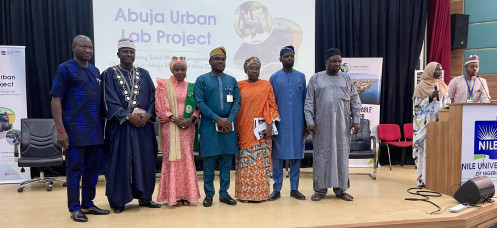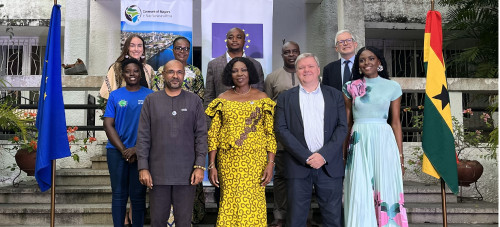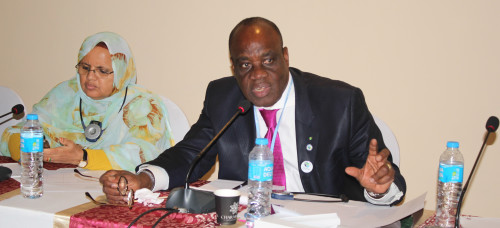Local governments find innovative ways to continue SEACAP data collection during the pandemic
Published: 10 Dec 2020

CoM SSA signatories recently met online to share their successes and challenges in collecting data for their SEACAPs. Traditional knowledge and engagement with national government were highlighted as key considerations to compiling useful, robust data sets.
One of the key benefits of being a CoM SSA signatory is the opportunity the initiative, co-funded by the European Union, the Federal Ministry of Economic Cooperation and Development (BMZ) and the Spanish Agency for International Development Cooperation (AECID), provides in learning from other cities about how best to plan for climate change and ultimately take tangible climate action.
During CoM SSA Day at the Local Climate Solutions for Africa 2020 virtual congress, three signatories, Garoua in Cameroon, Nakuru County in Kenya, and Bobo Dioulasso in Burkina Faso, presented their learnings in completing data collection for the three main pillars of their Sustainable Energy Access and Climate Action Plans (SEACAPs): adaptation, mitigation, and access to sustainable energy. This session was only open to other CoM SSA signatory cities to provide focused attention to the CoM SSA process of developing a SEACAP.
COVID-19 continues to have a profound impact on data collection and this was a key challenge the cities were able to discuss. Municipalities found innovative ways to continue their work despite restrictions. Mr Hamidou Baguian, Director for Environment at the City of Bobo Dioulasso, explained how his team changed the format of the Risk and Vulnerability Assessment workshops in order to respect the regulations of having no more than 15 people in a room. Initially workshops were planned for 30-40 people from each district of the municipality, bringing together experts from all sectors, but the format was changed to accommodate a smaller gathering of participants, focusing on a specific theme, for example, agriculture, energy, and water.
The importance of choosing an appropriate data collection method
During the second part of the session, representatives of signatory cities who attended were divided in two break-out rooms where they could reflect on the presentations of the three CoM SSA cities and share their experiences on data collection, lessons learnt and different methodologies within their own cities.
Some participants emphasised the need to involve local communities in a participatory approach for data collection. This is because local communities hold critical data, indigenous knowledge and information, as well as solutions that they are already applying to fight climate change and its consequences. Others identified a strong need to connect with national government and relevant ministries in order to request data or align subnational climate and energy actions and targets to the national targets as expressed through countries’ Nationally Determined Contributions or National Energy or Adaptation Plans.
The resources and processes required to institutionalise this data collection process in the city administration were also discussed in the break-out rooms. For instance, Ms Grace Karanja, Director for Environment, Energy and Natural Resources at Nakuru County, said city staff need to ‘’advise our other sister departmental sectors to ensure they mainstream climate change issues within their departments and also ensure they have energy efficiency models within their sectors for us to achieve what we call a climate smart county’’.
The session showed that there is not one ideal process or methodology to collect data and that cities need to adapt these processes to their needs and context, potentially combining participatory and mainstream scientific methods. Regardless of the methods, the message remained clear that it is of utmost importance to involve multiple stakeholders in the process of SEACAP development.
Read more: Energy and Emissions data collection – A guide for developing cities





